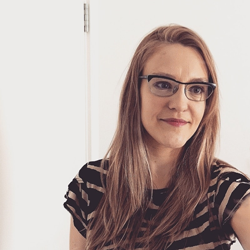Last night I went to Chinwag’s talk on ‘The dark side of social media’. There was the predictable discussion about paedophiles and how, although there aren’t likely to be more dodgy people online than offline, the ability to hide your real identity makes it easier to do bad stuff. However, the ability to track people using new technology (IP addresses I would imagine being the main way) was said to have the potential to sort that problem out, at least partially.
Someone in the audience voiced concerns about children giving out personal details etc., but the panel seemed to have more faith in children’s intelligence. I don’t think it’s worth having much of an opinion about how much that happens or how dangerous that is until someone does some serious, peer reviewed, research. It seems to me much easier to find out where a kid lives by simply following them home offline, than trying to get them to give you details online.
Someone else made a good point about identity, and how being open about your life online, with no privacy, makes you totally ‘own’ all the things you might otherwise want to hide about yourself. I liked this point, and thought it was quite philosophical. He was trying to make a point about how social networking sites could actually change the way people think and feel about themselves and each other, in totally new ways. I don’t think the panel really got his point.
People worried about what kids will have to deal with online might consider this: When I was 14 and chat rooms had just come out, I was too young to go to night clubs. In chat rooms I often (as in, every single time I logged in) encountered a pervert, who would trick you into innocent ‘private chat’ which would soon deteriorate into filth. I soon learned how to spot a perv, and how to tell them to sod off. When I was old enough to get into clubs at 16, I was prepared for pervy guys, and I knew how to deal with them. I think the chat-room experience was a safe way (they couldn’t actually harm me physically there) to learn how to spot and deal with weirdos offline.

2 responses to “The dark side of social media”
Hi Beth,
I’m the Guy who made that point you were talking about! Glad you found it interesting 🙂
I wrote a bit about the event here:
http://www.vexappeal.com/2007/06/taming-of-shaming.html
I’ve got another post to come in a day or so that’s inspired by Tim Ireland’s striking paranoia and disdain for human nature vs. my lovely hippie idealism…
Hi Beth, thanks for the write up of the event and glad you found it interesting. I really agree with your summary of what the guy in the audience from Mindcandy was saying:
Funnily enough, the only point I wrote down in the whole evening was one from panellist Luke Razzell addressing that point and the broader issue of how the narrow categories of Myspace, Facebook et al and overall web technologies don’t (yet) really reflect the diversity and subtelties of human identity (if you’ll excuse the philosopohical terminology!). Luke said:
That one line alone has set me off on several trains of thought…